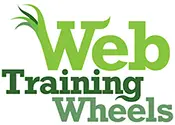This is a guest post written by Kathleen Dowdey of AvocadoVideo.com. Kathleen produces online and offline video for small businesses, agencies, special events and entertainment venues. www.avocadovideo.com
Ready to take the plunge and liven up your website with some video? You’re not alone. “With the advent of YouTube, anyone with a video camera, some editing software and a little bit of free time can create a video of just about anything,” writes Katie Wertz. She’s published on the Bruce Clay, Inc. website, a leading search engine optimization consulting service that helps clients up their SEO rankings. Wertz notes how well video engages website visitors, then mentions an attractive bonus: “Because of the YouTube partnership with Google, it’s a great way to be found…”
Join the millions who are rushing to broaden their web user reach with video. After all, video on your website sounds like a simple proposition, doesn’t it? Still, you might take a deep breath after visiting YouTube where you’ll discover a staggering range of possibilities. Before you touch that camera, consider what kind of video you want. There are many factors – the quality, content, genre, style and vision. Your research and project conceptualization will likely be the most valuable investment you make. Done well, it will even save you money.
